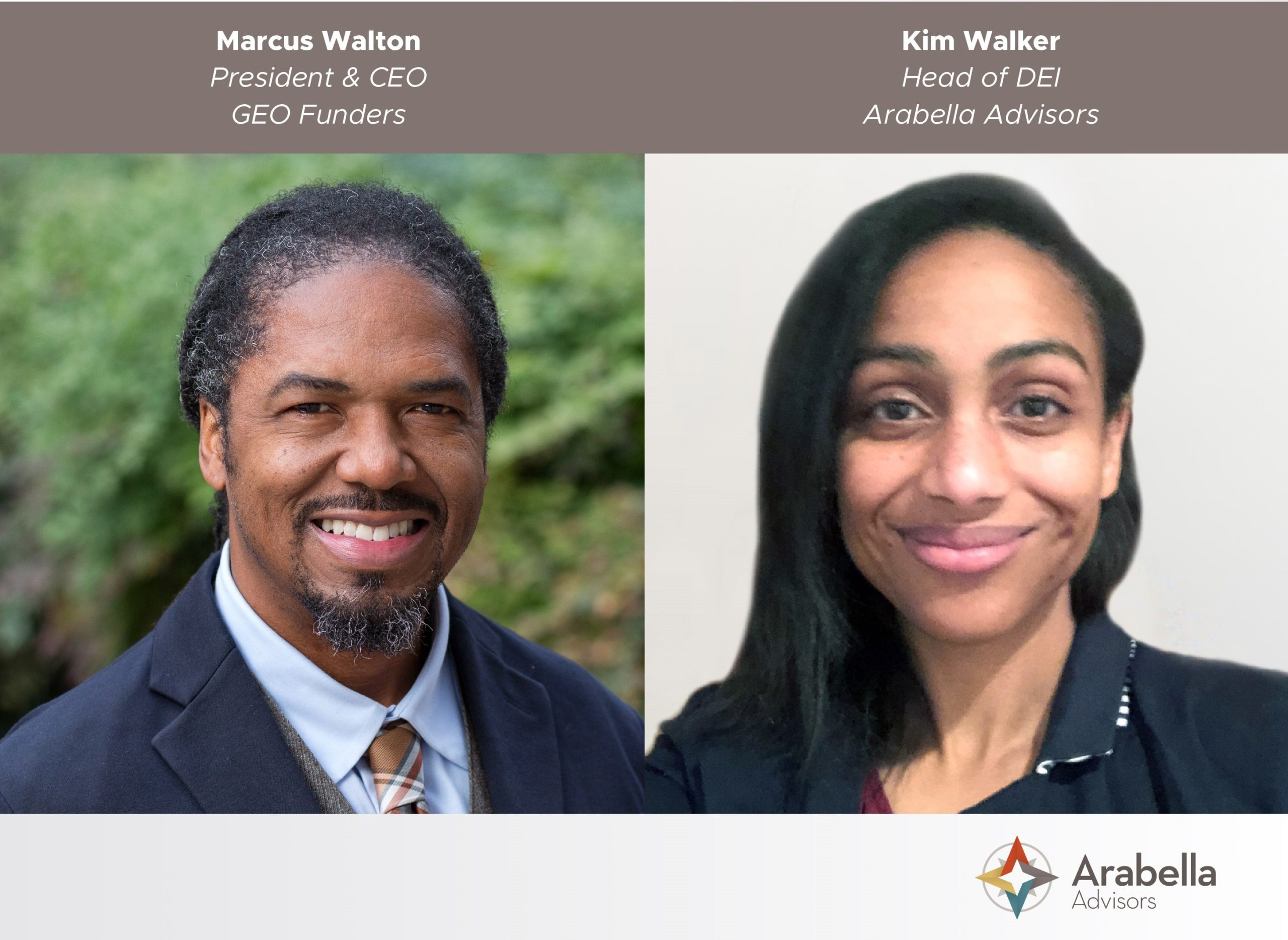Marcus Walton and Grantmakers for Effective Organizations

In the latest episode of Arabella Advisors’ podcast, Kim Walker, Arabella’s Head of Diversity, Equity, and Inclusion, talked with Marcus Walton, President and CEO of Grantmakers for Effective Organizations. Here’s some of what Marcus had to say during their conversation:
- “First and foremost, I have to say that anything that I have to offer is not from me, it is the result of everything I have experienced including what I have heard from the community of colleagues that make up the ecosystem of Grantmakers for Effective Organizations.”
- “To give up hope and not try guarantees we will not get a different result.”
- “Going it alone is something that doesn’t serve any of us, in our work or in our lives. We are here to experience joy. Perhaps at the center of philanthropy is joy, which I believe we have an opportunity to reclaim. Our focus has been off a little bit, diverted along the way, away from joy.”
- “My journey really became about navigating inequitable systems. I became an expert in that navigation and didn’t even think about the transformation of those systems. […] It has taken so much courage for me to think about the imperative of leaders. That is different from a manager, who operates in the known and the familiar. Leaders operate in the unknown, the growth zone, and focus on effectiveness.”
- “I grew up in a working-class environment … I truly saw what it means to care for people. To share butter and cheese, this is real. That’s philanthropy, that’s the spirit of philanthropy–an institutionalized form of that thing. It’s really about our collective humanity.”
- “[This past year] we moved from a place of knowing to now sharing an unknown. Now we are all in the unknown together. Ambiguity completes the cycle, every stage. That may be a blessing in disguise because now we have a shared experience.”
- “There’s only one race, the human race, and it’s comprised of a variety, a multitude, a cornucopia if you will, of cultures and ethnicities and all types of expressions of our collective humanity, that are bound by norms, belief systems, rituals, practices, attitudes, and mindsets that make up our culture.”
- “What the data shows us, if we get the most nuanced picture of who we’re serving as grant makers, is that it is predicable by race, by categories of this imaginary distinction between people.”
- “The practice of racial equity is to do everything in our power, to super simplify the thing, use the power at our disposal, whether positional or individually held inherent in our being, to undo the policies that cause harm, reverse the practices that are causing and perpetuating harm, and replace them with policies and practices that are affirming, humanizing, and welcoming to everyone that is contributing to a particular system or structure or institution or organization. That’s racial equity practice. And it’s intersectional.”
- “We have to commit to change. And to commit to change means, from my experience, at some point in my journey, I had to be willing to be transformed by the experiences I encountered. Not imposing my thinking … but saying here are the people with whom I would like to thrive and form trusting relationships … and I am willing to bring my whole self, be all in, for change, and be shaped by what that process entails. That’s what I believe we need right now.”
- “In order for us to get to joy, and be in authentic community with each other, in order for us to acknowledge each other’s shared humanity and establish a shared vision for what it means to thrive as a collective body, we have to unpack the things that separate us from each other. And this invisible system that operated beneath the surface of inequity.”
To hear more from Marcus’ experience about what our world, and philanthropy, need to move forward, listen to his full conversation with Kim here.
